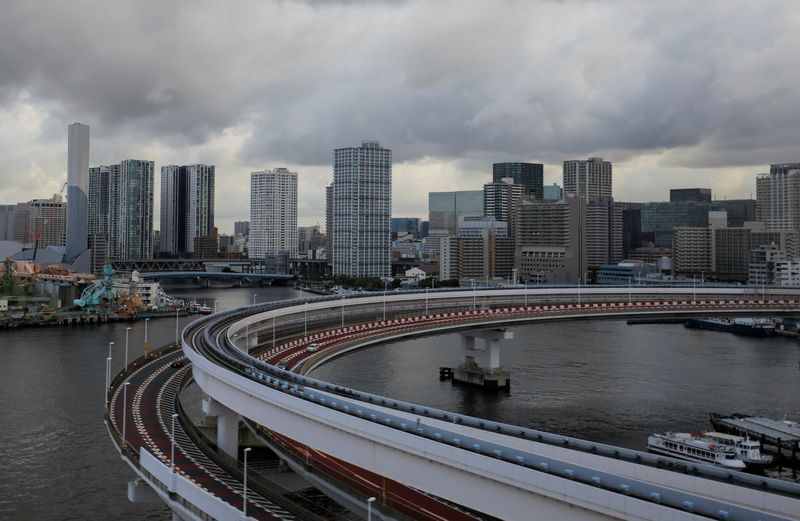
©Reuters. A view of the Tokyo skyline is seen through the window of a special bus carrying journalists to the media hotel during the Tokyo 2020 Olympic Games in Tokyo, Japan, August 2, 2021. REUTERS/AMR Abdallah Dalsh/ File Photo
By Takahiko Wada and Leika Kihara
TOKYO (Reuters) – Core inflation in the Japanese capital accelerated again in February, above the central bank’s target, as the effects of government fuel subsidies eased, data showed on Tuesday, a sign that The conditions were being created to end negative interest rates.
But an index that strips out the effect of energy costs, seen as an indicator of broader price trends, has slowed, shifting focus to whether Japan could see wage increases strong enough to support consumption.
The data will be among the factors the Bank of Japan (BOJ) will examine ahead of its policy-setting meeting on March 18-19 to judge whether to phase out its massive stimulus program.
Tokyo’s main consumer price index (CPI), a leading indicator of national data, rose 2.5% in February from a year earlier, in line with market forecasts, data showed on Tuesday.
The rise in the core index, which removes the effect of fresh food price volatility, followed a 1.8% rise in January.
A separate index that excludes the effect of both fresh food and fuel costs, rose 3.1% in February from a year earlier, slowing from January’s 3.3% gain. It was the slowest annual pace of increase since February 2023.
“The disinflation is not very broad as it mainly reflects a slowdown in processed food inflation,” said Marcel Thieliant, head of Asia-Pacific at Capital Economics, of the slowdown in the index excluding fresh food and energy.
“There is nothing in today’s report that will prevent the Bank of Japan from ending negative interest rates next month.”
Japan unexpectedly slipped into recession late last year, with the economy contracting 0.4% year-on-year in the October-December period due to weak business and household spending.
But with inflation running above 2% for more than a year and prospects for bumper wage increases rising, many market participants expect the BOJ to end its negative interest rate policy by April.
BOJ Governor Kazuo Ueda said last week that it was too early to conclude that inflation was close to sustainably reaching the central bank’s 2% target. But he said the economy is recovering moderately and showing promising signs on the wage outlook.
In an effort to revive growth and keep inflation stable at the 2% target, the BOJ currently guides short-term rates at -0.1% and the 10-year government bond yield around 0%.